With wells running dry and groundwater depleting at frightening rates, the federal government is growing concerned
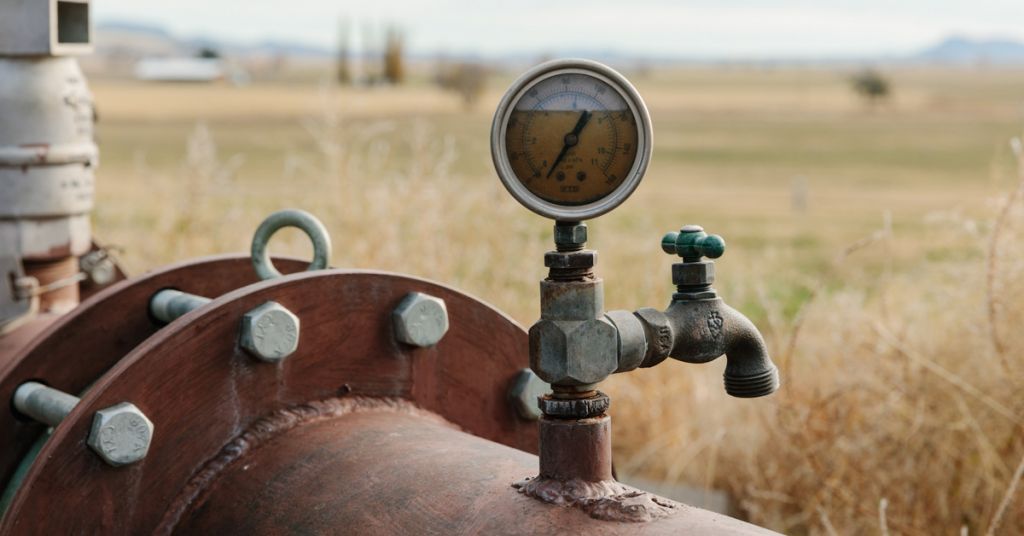
Low flow: A pressure gauge, which measures water pressure, in southern Oregon’s Klamath River Basin. Photo: Kimberley Hasselbrink
By Kendra Chamberlain. October 9, 2024. Republicans in the Pacific Northwest are spooked that the Biden Administration is investigating the country’s declining groundwater resources.
Six U.S. representatives, including Dan Newhouse (R-Wa), Mike Simpson and Russ Fulcher (R-Id) and Cliff Bentz (R-Or), declared their opposition to any attempts by the federal government to horn in on what they claim is purely a local matter: groundwater.
“It is not the role of the Federal government to manage or regulate groundwater,” the politicians say in a letter addressed to the President’s Council of Advisors on Science and Technology (PCAST). “As Members of Congress who represent rural and western districts, we staunchly oppose this effort to impede state, local, and Tribal regulatory authority.”
The Oct. 1 letter follows a similar missive sent by Idaho Gov. Brad Little and Lt. Gov. Scott Bedke to the Biden administration in late September.
The Republicans are responding to a query PCAST sent out in April, asking for public input on groundwater allocation issues across the West.
PCAST established a working group to focus on the issue earlier this year, a move that Republicans say signals that the Biden administration is angling for more say in groundwater management.
That may well be the case.
Groundwater is depleting at frightening rates across the country, including in the Pacific Northwest, and it’s not that clear states are doing a good job at conserving the resource.
This summer, for the first time, Idaho state officials were forced to curtail groundwater allocation for a short period. Oregon revised its groundwater rules after over a thousand wells ran dry across the state.
It’s no secret that sprawling development and often-unchecked agricultural practices have depleted or contaminated groundwater aquifers across the West.
Groundwater reservoirs don’t recharge quickly. In fact, the water being pumped from deep underground is likely hundreds to tens of thousands of years old.
“We are effectively mining that water, and that creates a sustainability challenge overall,” Upmanu Lall, director of the Columbia Water Center, explained during a public meeting on groundwater PCAST held in 2023. “If we use up that stock today, future generations won’t have it.”
Whose jurisdiction?
Conserving groundwater may require a more proactive approach than how states are currently handling the issue.
Groundwater depletions are localized events, but can impact entire economic sectors and, by proxy, the national economy, according to Lall.

Rep. Dan Newhouse. Photo: Office of Dan Newhouse
He pitched the formation of a national water strategy during the public meeting that would support local governments in conserving both surface water and groundwater using subsidies and grants.
As it stands now, PCAST is only collecting input from the public that’ll be used to develop a report to advance “government-wide action on groundwater.”
More information is a good thing, right? Not to everyone.
The Republican representatives say local water authorities have been left out of the process.
Rep. Newhouse told Columbia Insight in an email that he’s adamant that groundwater regulation is a state issue.
“While it’s not clear what their recommendations are or what the impacts to individual states will be, I sent a letter with a few of my Western colleagues trying to obtain more information and reiterate that groundwater is and should remain an issue left to the states,” said Rep. Newhouse.


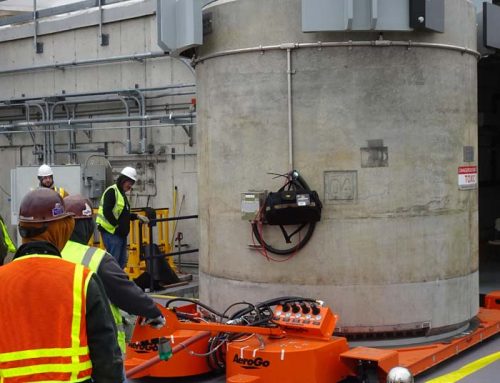
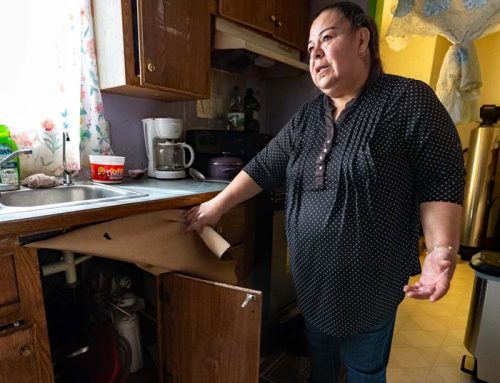
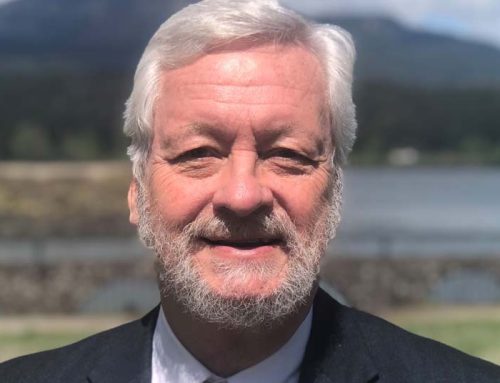

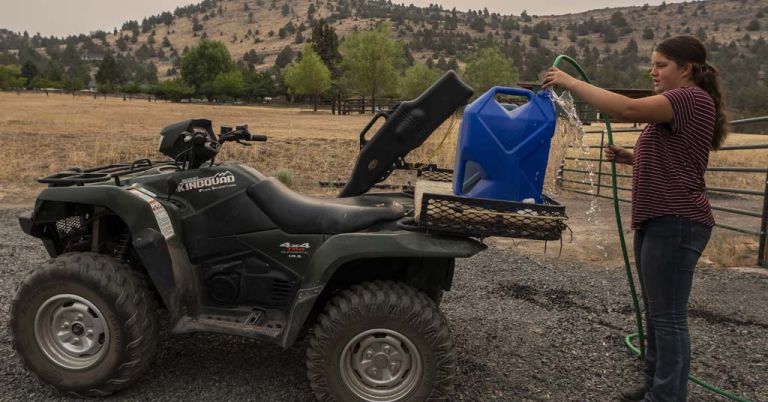

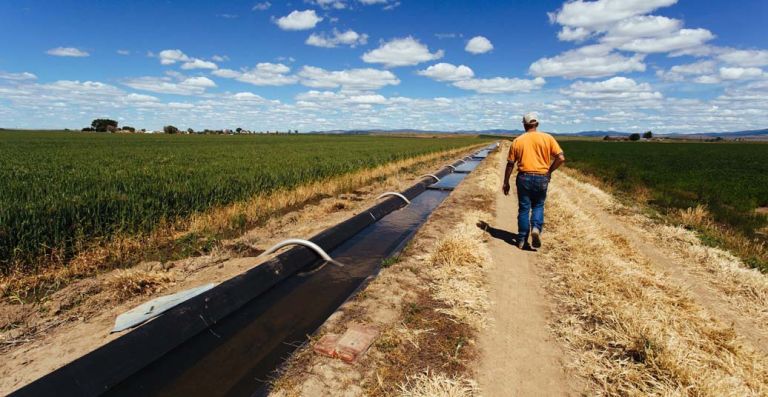
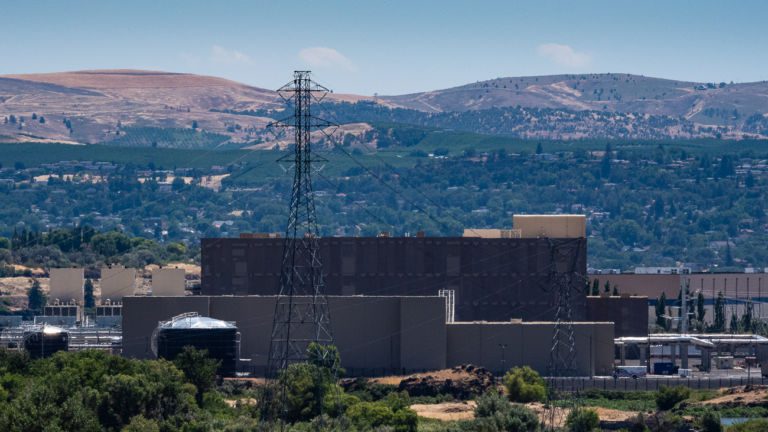


Right wingers ranting about “states’ rights”. Now where have I heard that before?
So little is sustainable about the “modern world’s” relationship to the Earth and our ecosystem, it is no surprise that some will fight to continue taking resources from the future for today under the guise of local control. Sad, but not a surprise. Thanks for a great article
How much of disappearing ground water is actually drilling for lithium rare earth mineral !?
And what say democrats?
Forget regulations, our former official in Klickitat county opposed as system that would share groundwater levels because he was scared that it would fall into the “wrong hands-like homebuyers & not easy money developers.
Folks like Newhouse and Bentz are afraid that a comprehensive groundwater study will reveal something they don’t want to know. They and the right wing farmers they represent have screwed up big time, that when the well runs dry – literally – not figuratively, their entire economy they have created will simply collapse. Oops, angry constituents? Ghost towns? A land mass that resembles Afghanistan?